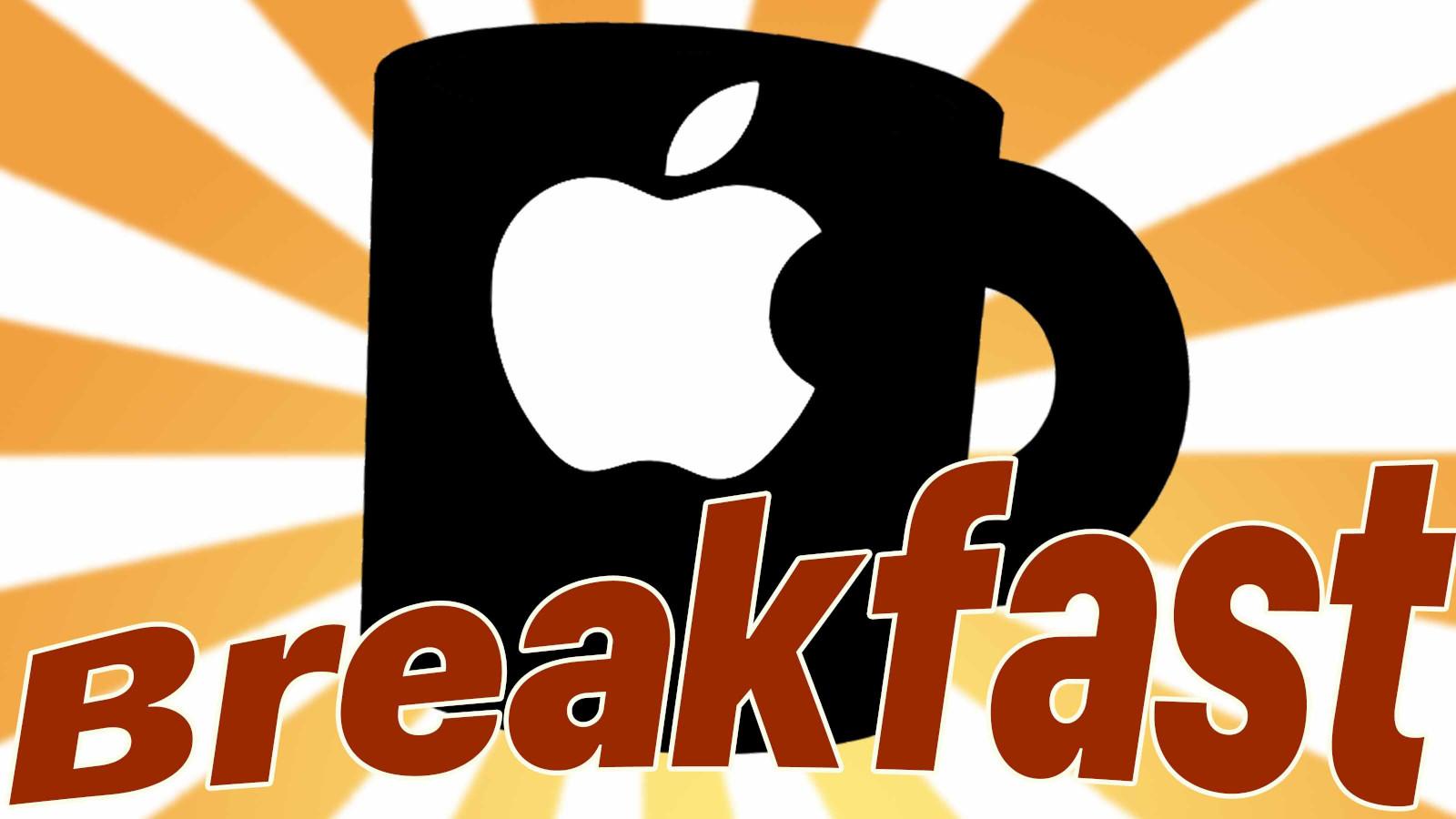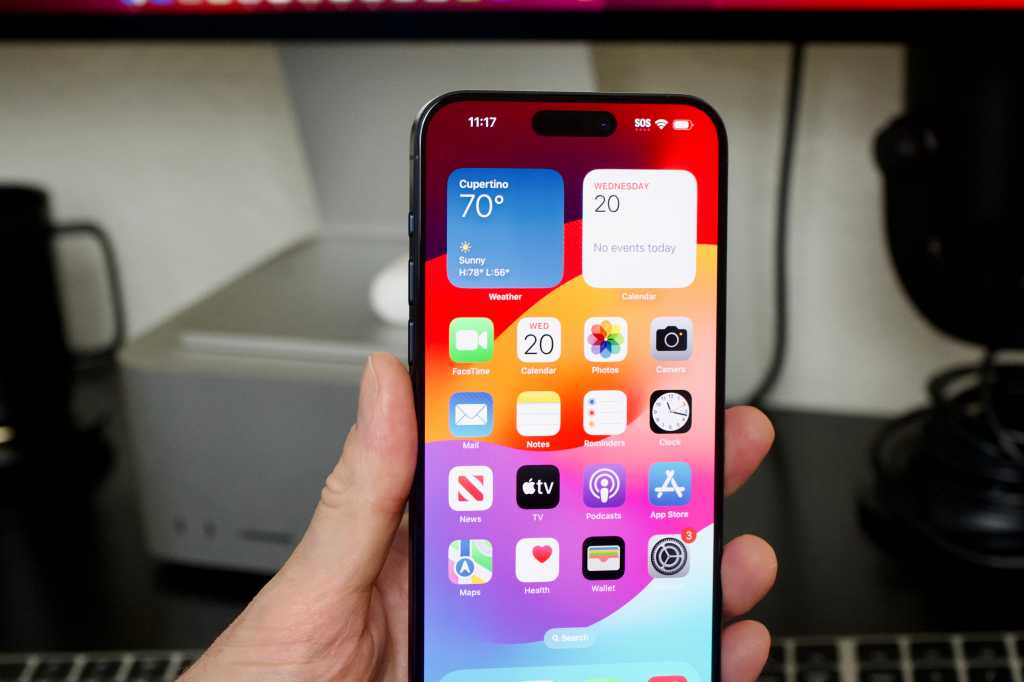Welcome to our weekly Apple Breakfast column, which includes all the Apple news you missed last week in a handy bite-sized roundup. We call it Apple Breakfast because we think it goes great with a cup of coffee or tea, but it’s cool if you want to give it a read during lunch or dinner hours too.
It wasn’t me
We all know that Apple doesn’t like being told what to do. The company’s first instinct, when accused of misbehavior, is to deny (“You’re holding it wrong”), lobby, or simply ignore the problem and hope it goes away. In this respect, perhaps, it isn’t that different from the average multinational company.
Where Apple truly excels, however, is in the art of tactical surrender. The company will fight tooth and nail for years against PR pressure or regulatory oversight, but when it finally gives in you can be sure it will do so at a time and on terms cunningly calculated to yield maximum advantage at minimum cost. Last week, for example, we got the news that the EU won’t force Apple to open up iMessage to Android users… a decision which coincidentally follows the company’s tactful announcement in November that it would voluntarily do approximately the same thing, in its own good time, by supporting the cross-platform RCS standard. Similarly, the company headed off pressure from the Right To Repair movement a couple of years ago by setting up a self-repair program so unappealing that it seemed designed to fail. Apple is very good at pretending to lose.
But sometimes the most effective tactic is a little less subtle… and more openly hostile. That’s when we get into the realms of malicious compliance, where a regulatory body rules against you so you follow the letter of their ruling in the most unhelpful way possible. Under that category comes last week’s news that Apple is going to disable home screen web apps in iOS 17.4, but only in the EU. The reason for this backward step? The EU told Apple it had to allow third-party browsers and app stores under the Digital Markets Act, and this created alleged security headaches for web apps that would require an “enormous amount of engineering” to solve. Sorry guys, we’d love you to keep enjoying this feature but those killjoy bureaucrats at the EU have forced us to get rid of it.
It’s important to recognise here that Apple is making a choice, while pretending that it isn’t. The company wants to convince users that it’s the EU’s fault that web apps are getting killed off, but the EU has simply made a rule; it’s up to Apple to comply with that. Sure, there may be complications, but it’s not like Apple will struggle to find a software engineer in the building. This is one of the most well-resourced companies in the world, and if it wants to sort something out, it will. It’s just that in this case, sacrificing a relatively minor feature in one territory is worth it to paint the EU as the villain of the piece, to whip up public opinion against the idea of opening up iOS’s walled garden, and to further push the idea that sideloading is fundamentally insecure.
(It’s probably worth mentioning that we’ve been here before: last summer Apple responded to proposed security-related legislation in the U.K. by threatening to shutter its FaceTime and iMessage services in that country. But Apple appears to have honed the tactic since then; removing one feature is more realistic than taking down two massively popular messaging services.)
Whether users will buy all this remains to be seen. A lone X/Twitter user responding to The Verge’s coverage of the story dutifully argued that European lawmakers had “got what they wished for,” but most of the rest seemed unimpressed by Apple’s play, suggesting that the EU should get tougher or (as usual) that users should switch to Android. The Cupertino focus on security is in many ways admirable, but there’s a scaremongering aspect that isn’t helpful, and may no longer be as effective at achieving the company’s aims: each dire invocation of cackling cybercriminals, if unaccompanied by actual cybercrime, waters down the message that little bit more. Nor, for that matter, does it seem wise to provoke the EU by treating it like an annoying schoolteacher with an inconvenient new rule.
But with the walled garden crumbling and the digital vultures circling, Apple may be growing desperate. Exercising full control of its platforms has been extraordinarily lucrative, and the company won’t let go without a fight–even if officially, that fight is already over.

Foundry
Trending: Top stories
If the Mac can handle the ‘risk’ of alternative app stores, why can’t the iPhone?
Vision Pro is Apple’s weirdest and riskiest product in years–and it shouldn’t stop there.
Podcast of the week
In this episode of the Macworld Podcast, we continue our discussion of the Apple Vision Pro–whether it’s worth your money and its place in Apple’s ecosystem.
You can catch every episode of the Macworld Podcast on Spotify, Soundcloud, the Podcasts app, or our own site.
Reviews corner
- Apple Vision Pro review: Incredible unrealized potential.
- 14-inch M3 Pro MacBook Pro review: The sweet spot for price and performance.
- Belkin BoostCharge Pro review: A quick charge in your pocket.
The rumor mill
tvOS 17.4 beta reveals Apple is close to releasing a HomePod with a screen.
Report: Apple’s upcoming A18 and M4 chips to get boosted AI capabilities.
Apple buys iWork.ai domain as evidence of a big AI push mounts.
iOS 18 to mimic Vision Pro’s visionOS interface, sketchy report claims.
Software updates, bugs, and problems
‘Ghost touch’ display problem afflicting some latest-gen Apple Watches.
10-year old bug still causing headaches for Mac audiophiles.
Apple releases visionOS 1.0.3 with option to reset your Vision Pro.
iOS 17.4 beta 2 is now available.
And with that, we’re done for this week’s Apple Breakfast. If you’d like to get regular roundups, sign up for our newsletters. You can also follow us on Facebook, Threads, or Twitter for discussion of breaking Apple news stories. See you next Monday, and stay Appley.

